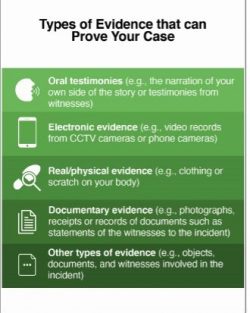What is the process of making an Enforcement of Fundamental Rights claim?
If your rights have been violated or if there is a threat to violate or likelihood of violating your rights then you can go to court and start the process of making an Enforcement of Fundamental Rights claim.
Who can start a Fundamental Rights claim?
Who can start a Fundamental Rights claim?
Based on the provisions in the Fundamental Rights Enforcement Rules, Section 3(e), the followings persons or organizations can take legal action:
- Anyone acting in his own interest.
- Anyone acting on behalf of another.
- Anyone acting as a member of, or in the interest of a group or class of persons.
- Anyone acting in the public interest.
- Association acting in the interests of its members or other individuals or groups. This includes human rights activists, advocates, or groups as well as any non-governmental organisations, acting on behalf of a potential applicant.
Who can I take legal action against?
It is important to identify who you can take legal action against because suing the wrong party (person) could make you lose your case.
Who can I take legal action against? It is important to identify who you can take legal action against because suing the wrong party (person) could make you lose your case.
It is only the government and its agents that can be taken to court on human rights violations. Individuals and private companies cannot be taken to court under this procedure.
If your rights are violated by private individuals and companies, you report these violations to the relevant government authorities. Where the government fails to do its work, they have failed in their duty to enforce human rights protection and you can take legal action against these authorities for their failure.
Where can I take legal action?
Where can I take legal action? Only at the Federal High Court or State High Court.
Order II Rule 1 of the FREP Rule 2009
Any person who alleges that any of the Fundamental Rights made available in the Nigerian Constitution or the African Charter on Human and Peoples’ Rights (Ratification and Enforcement) Act and to which he is entitled, has been, is being, or is likely to be infringed, may apply to the Court in the State where the infringement occurs or likely to occur, for redress; and by the proviso to this Rule, where the infringement occurs in a State which has no Division of the Federal High Court, the Division of the Federal High Court Administratively responsible for the State shall have jurisdiction. Any person whose fundamental right has been breached, is being breached or is likely to be breached, may apply to a High Court of in that State for enforcement of his rights
However, in a matter in which the Federal Government or any of its agencies is involved, the Federal High Court will be the right court at which to start your action.
How do I take legal action?
The steps involved are as follows:
- Get a lawyer first.
- Your lawyer will file an application for the enforcement of Fundamental Rights. The application shall be supported by a statement setting out: name, description of the applicant, the relief(s) sought, in other words, what you are asking the court to give you,and the grounds upon which the reliefs are sought, in other words what are the rights that have been violated and the laws that allow you to seek the court’s help.
- The application must be supported by an affidavit setting out the facts upon which the application is made as provided under Order II Rules 2 and 3 of the FREP rules 2009.This means explaining what the facts where that lead to your human rights being violated.
- The application should be accompanied by a written address which shall contain brief argument in support of the grounds, or reasons as to how the facts amount to the violation of your rights and which rights, as provided under Order II Rule 5 of the Rules
- The other party will be served with your application, which means the other party will be made aware of the application. They will be given 5 days from receiving your application to oppose and submit a written address and a counter affidavit stating his facts and grounds to oppose your application.
- You will then be served or informed by the court about the other party’s response and will be given 5 days to respond to their arguments by submitting another written address and affidavit.
How do I prove that my rights have been violated?
In order for your action to stand a chance at being successful, you need to ensure that you are able to provide evidence in support of your allegations.
Without evidence, it would be difficult to win a case. Therefore, to prove that your rights have been violated, you as the victim could provide different forms of evidence, such as:

What are the challenges I may face in enforcing my rights upon violation?
There are practical aspects which are relevant to think about when deciding if to take legal action:
- You may not get justice on time. Sometimes, litigation processes usually take longer than expected.
- Your case may be struck out by the court if in the court’s discretion you do not allege serious human rights violation.
- Monetary challenges may also hinder you from seeking redress in the court because you will need a lawyer and need to pay legal fees.
- You may want to think about non-judicial mechanisms explored in What if I do not want to go to court? What other steps can I take to defend human rights?